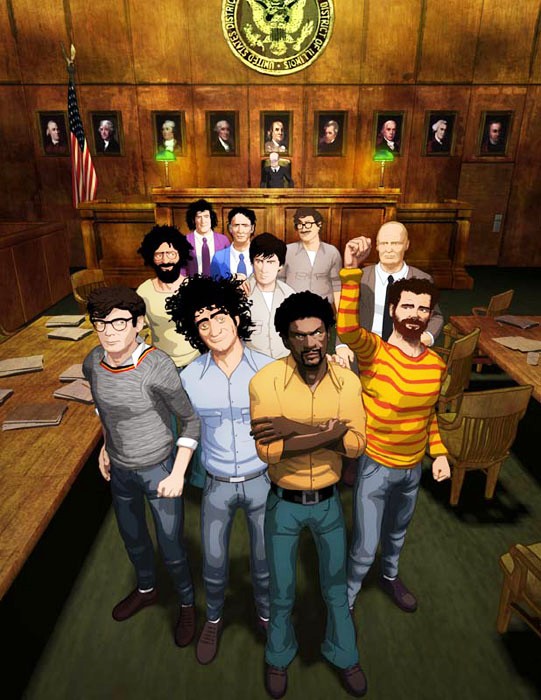âÄúChicago 10âÄù Directed by: Brett Morgen Rated: R Playing: On PBS We thought the Republican National Convention in St. Paul was bad. The riots and revolts, the police brutality and the media coverage were certifiably insane, but things werenâÄôt quite at their worst. Anyone who could witness the events of ChicagoâÄôs 1968 convention can compare ours to another war-torn time, when the convention got so out of hand that a bespectacled, graying reporter declared on national television that Chicago was âÄúin a police state âÄî thereâÄôs no way else to say it.âÄù As it explodes onscreen in a partially animated blast of color, itâÄôs immediately evident that âÄúChicago 10âÄù is not a documentary that is content to present its audience with a dull history lesson and a panel of learned contributors. This is a movie that wants to grab us by our lapels and shake us, assault our eardrums and force us to watch. The story of the âÄúChicago 10,âÄù more commonly referred to as the Chicago 7, begins in 1968, a year so contentious it makes aught-eight seem like a 365-day Kumbaya session. An uprising was beginning due to dissatisfaction with Lyndon B. Johnson and his support of the war in Vietnam. With an upcoming election both threatening and promising changes, a group of radicals who called themselves Yippies organized a colossal demonstration to show the âÄúpolitical pigsâÄù exactly what was on their minds. Led by flamboyant activist Abbie Hoffman , the group stormed the city of Chicago, threw a massive concert featuring Detroit punks The MC5, protested ceaselessly to much chaos and destruction, and eventually found seven of their ringleaders in court. Thus, a documentary was born. Oscar-nominated director Brett Morgen (of 2002âÄôs celebrated documentary about Robert Evans, âÄúThe Kid Stays in the PictureâÄù) said he conceived the film at the start of the Iraq war, noticing the parallels between our modern times and those of the turbulent âÄò60s. Morgen dug up archival footage and ancient court transcripts, but to avoid boring his audience, he very cleverly set them to animation. There are characters like Hoffman (who you may be familiar with from his posthumous âÄúcameoâÄù in âÄúForrest GumpâÄù) who lend themselves readily to animation, and the cartoons drive home the absurdity of what occurred in the courtroom. That said, âÄúChicago 10âÄù is no comedy. ItâÄôs hard to watch the footage of protesters being brutally beaten, not unlike âÄî but to a harsher degree resembling âÄî the demonstrators at the St. Paul RNC. Morgen decided not to use âÄò60s-era music to soundtrack his film, instead having politically charged contemporary bands like Rage Against the Machine re-record pivotal pieces such as âÄúKick Out the JamsâÄù by the MC5. He sets the Beastie BoysâÄô âÄúSabotageâÄù and Eminem to protestors storming Chicago. The juxtaposition is jarring enough to command your attention but unassuming enough not to distract from the real action playing out on screen. The most cringe-inducing moment of the film comes when the court binds and gags defendant Bobby Seale , a prominent Black Panther accused of conspiracy along with the other seven men, for simply refusing to be silent. (This moment inspired Graham Nash to write âÄúChicago,âÄù with the lyrics: âÄúSo your brotherâÄôs bound and gagged/and theyâÄôve chained him to a chair.âÄù) ItâÄôs outrageous; itâÄôs angering; and it all actually happened.

Image by Ashley Goetz
Animated dissent
Published October 9, 2008
0
More to Discover







